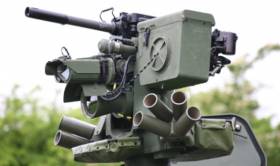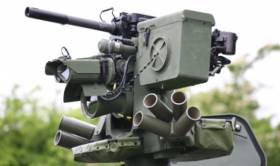Displaying items by tag: Air Defence
Marine Notice: Air-To-Ground Shoot At Gormanstown Air Defence Range
#MarineNotice - The Defence Forces advise that they will conduct an Air Firing (Air to Ground) Shoot at Gormanston Ranges from Monday 28 August to Saturday 9 September, excluding Saturday 2 and Sunday 3 September, between 9am and 5.30pm each day.
The danger area (EID1) comprises the lands of Gormanston Aerodrome and the air and sea areas contained within a radius of three nautical miles centred on aerodrome.
This includes an additional area contained within a segment centred on Gormanston Aerodrome and bearing of 015º degrees true, through Mosney Railway Station and 106º degrees true, through Gormanston Railway Station seawards for a distance of 10 nautical miles.
For the periods while the range is active, the sea zone within the danger area is out of bounds to all vessels.
A Naval Service patrol vessel will enforce the exclusion zone ‘D1’ as indicated on UKHO Chart No 44.
All vessels are advised that they are required to remain outside of the exclusion zone whilst the range is active. Vessels are also recommended to carefully monitor the Radio Navigation Warnings that will be broadcast during the firing period.
Marine Notice: Air-To-Ground Shoot At Gormanston Ranges
#MarineNotice - Following April's air defence shoot, the Defence Forces will be conducting an air-to-ground shoot at Gormanston Ranges between 16 and 28 May (excluding Sunday 22 May) from 10am to 6pm each day.
The danger area (EID1) comprises the lands of Gormanston Aerodrome and the air and sea areas contained within a radius of three nautical miles centred on Gormanston Aerodrome.
An additional area is contained within a segment centred on Gormanston Aerodrome and bearing of 015º degrees true, through Mosney Railway Station and 106º degrees true, through Gormanston Railway Station seawards for a distance of 10 nautical miles.
For the periods while the range is active, the sea zone within the danger area is out of bounds to all vessels. A Naval Service patrol vessel will enforce the exclusion zone ‘D1’ as indicated on UKHO Chart No 44.
All vessels are advised that they are required to remain outside of the exclusion zone while the range is active. Vessels in the area are recommended to carefully monitor the Radio Navigation Warnings that will be broadcast during the firing period.































































